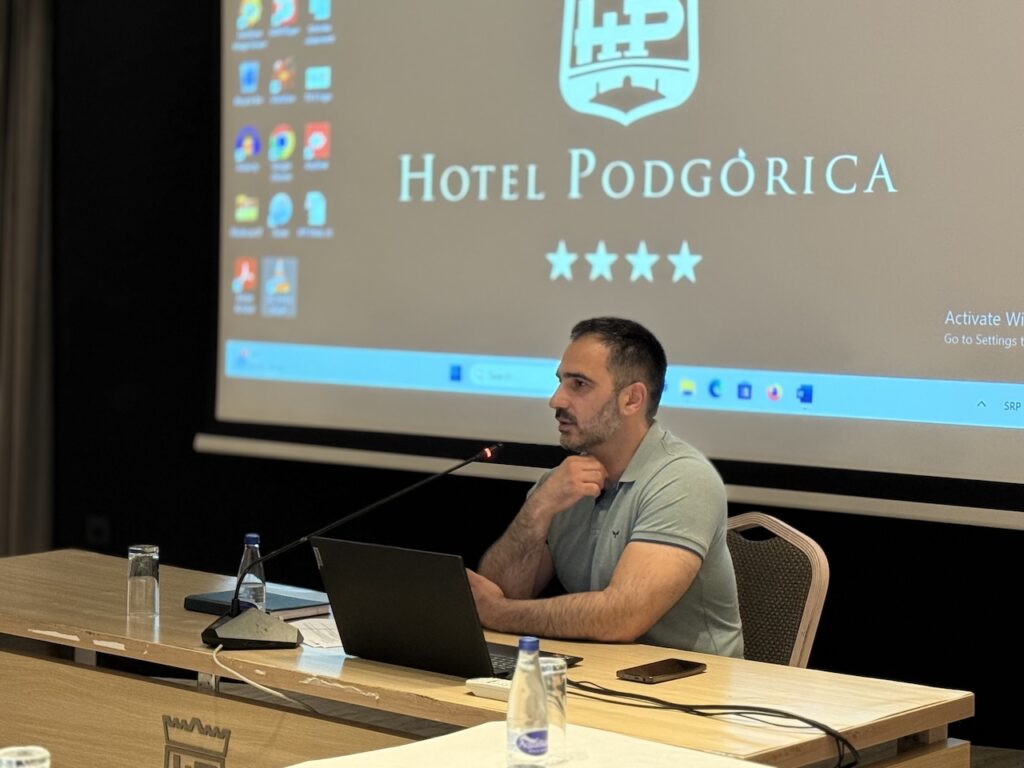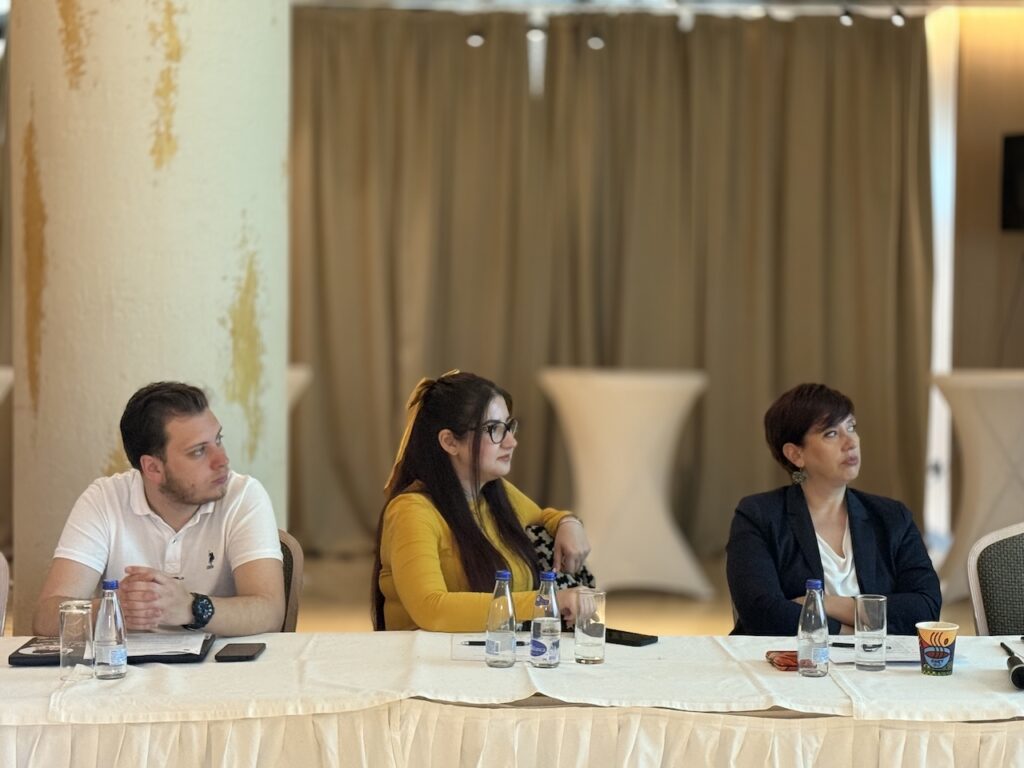We don’t just share problems – we share solutions was the message that dominated the intensive multi-day training programme organized by the Centre for Civic Education (CCE) from 5 to 8 May in Podgorica. The training gathered representatives of 12 non-governmental organizations from Montenegro, Albania, Bosnia and Herzegovina, Kosovo, North Macedonia, and Serbia, whose projects were supported through the Together for LGBTQI+ Equality programme.
The capacity-building programme covered a variety of topics, including project management and narrative reporting, financial management, public procurement procedures and VAT exemption, visibility rules for EU-funded projects, and other related areas.
“Our goal was not only to provide financial support to civil society organizations but also to empower them to become long-term drivers of change in their communities”, emphasized Petar Đukanović, Programme Director at the CCE. “Through comprehensive training in project management, communication, visibility, advocacy, and public policy monitoring, the organizations gained practical knowledge and skills enabling them to act more efficiently, professionally, and confidently in the field of LGBTIQ+ rights protection. Additionally, this programme provided a valuable opportunity for networking, allowing organizations from different countries to connect and establish cooperation that can strengthen regional solidarity and a joint approach in the fight for the preservation and advancement of human rights”, concluded Đukanović.
Gracija Atanasovska from the Coalition MARGINS in North Macedonia also highlighted the value of connecting with people from other organisations from the region who are trying to improve the human rights situation through activism. “Events like these help us connect, share experiences and best practices, but also share the challenges we face in our countries. Meeting face to face adds an important, more intimate dimension to cooperation. Of course, the sessions on project implementation were also useful to us”, she noted.
“It is always beneficial to connect with organizations from the region that are implementing similar programmes and projects”, stated Visar Krusha from the NGO Integra in Kosovo. “I found the EU project implementation guidelines particularly helpful, especially the sections on narrative and financial reporting. Additionally, exchanging ideas and experiences on how to approach different challenges in our work, from different perspectives and contexts, while directlynetworking, is a solid step toward future regional cooperation”, added Krusha.
Marko Vukčević from the Association Spektra noted the importance of the training programme, emphasizing that in recent years the need for more active advocacy for LGBTIQ rights by a broader circle of civil society actors has become increasingly evident. “It’s crucial to learn how to manage projects in a quality and transparent way – especially because procedures are becoming more complex, and attacks on the NGO sector are intensifying. Even though our organisations are different, we face similar challenges and operate in very interconnected contexts,” Vukčević stressed.
Representatives from the UNSA GETO organization said that the programme was extremely useful for strengthening the capacities of associations through practical tools for project implementation. “An added value is the connection with other organizations, especially given that we encounter similar obstacles in our work. This exchange of experiences, resources, and strategies leads to the creation and strengthening of a united front in the fight for LGBTIQ+ rights. Being physically together, rather than in the usual online space, also fosters the development of new ideas and creates energy for further action”, they highlighted.
The training concluded with a contract signing ceremony for the organizations whose projects received support.
The Together for LGBTQI+ Equality programme is implemented by the CCE, in partnership with ERA – LGBTI Equal Rights Association for Western Balkans and Turkey, Queer Montenegro, the Queer Center from Skopje, Tuzla Open Center, NGO OMSA from Albania, and the Center for the Development of Social Groups from Kosovo. The project is funded by the European Union.
Marlena Ivanović, Programme Associate




